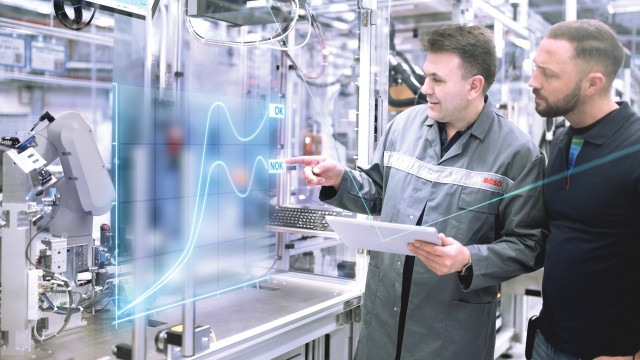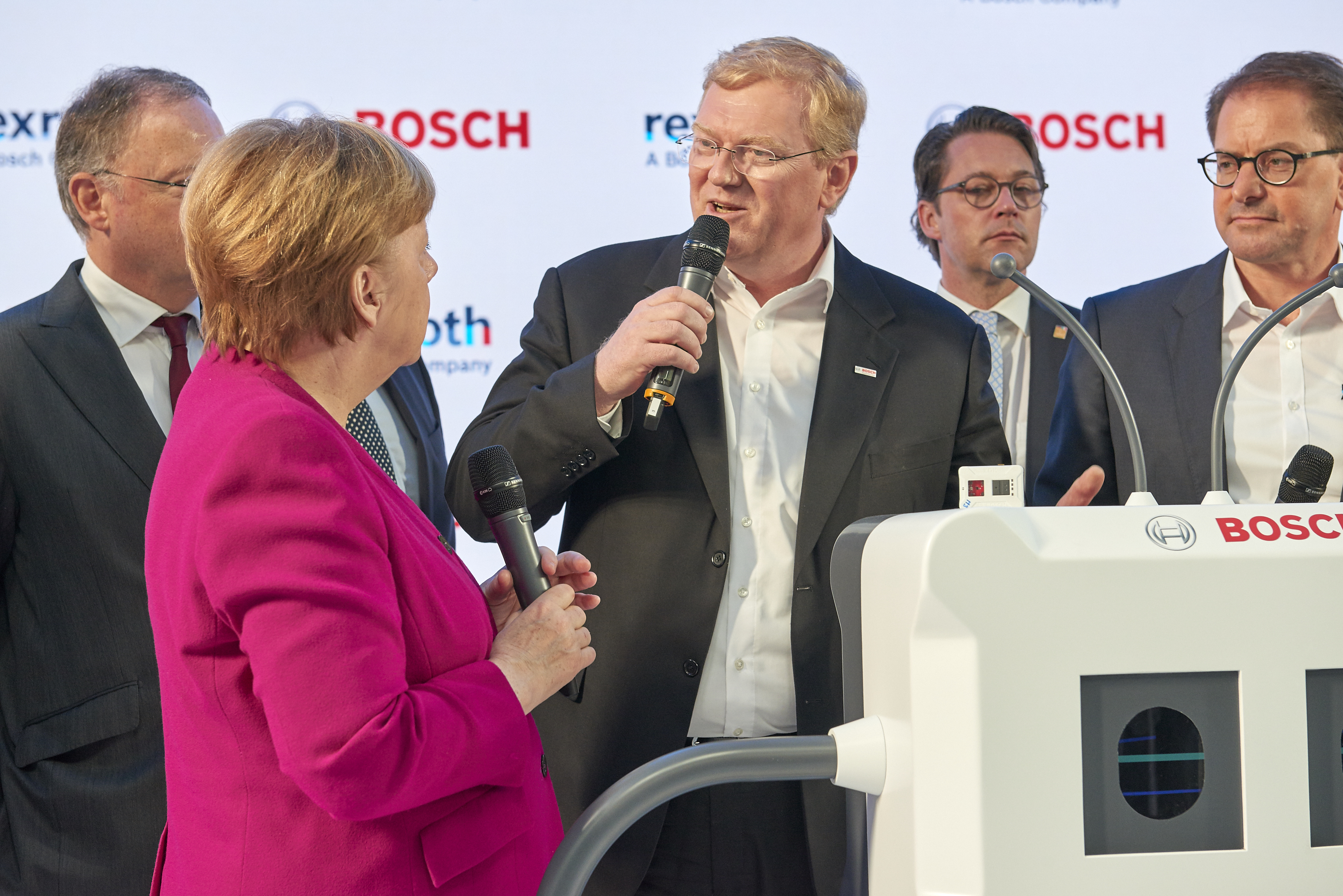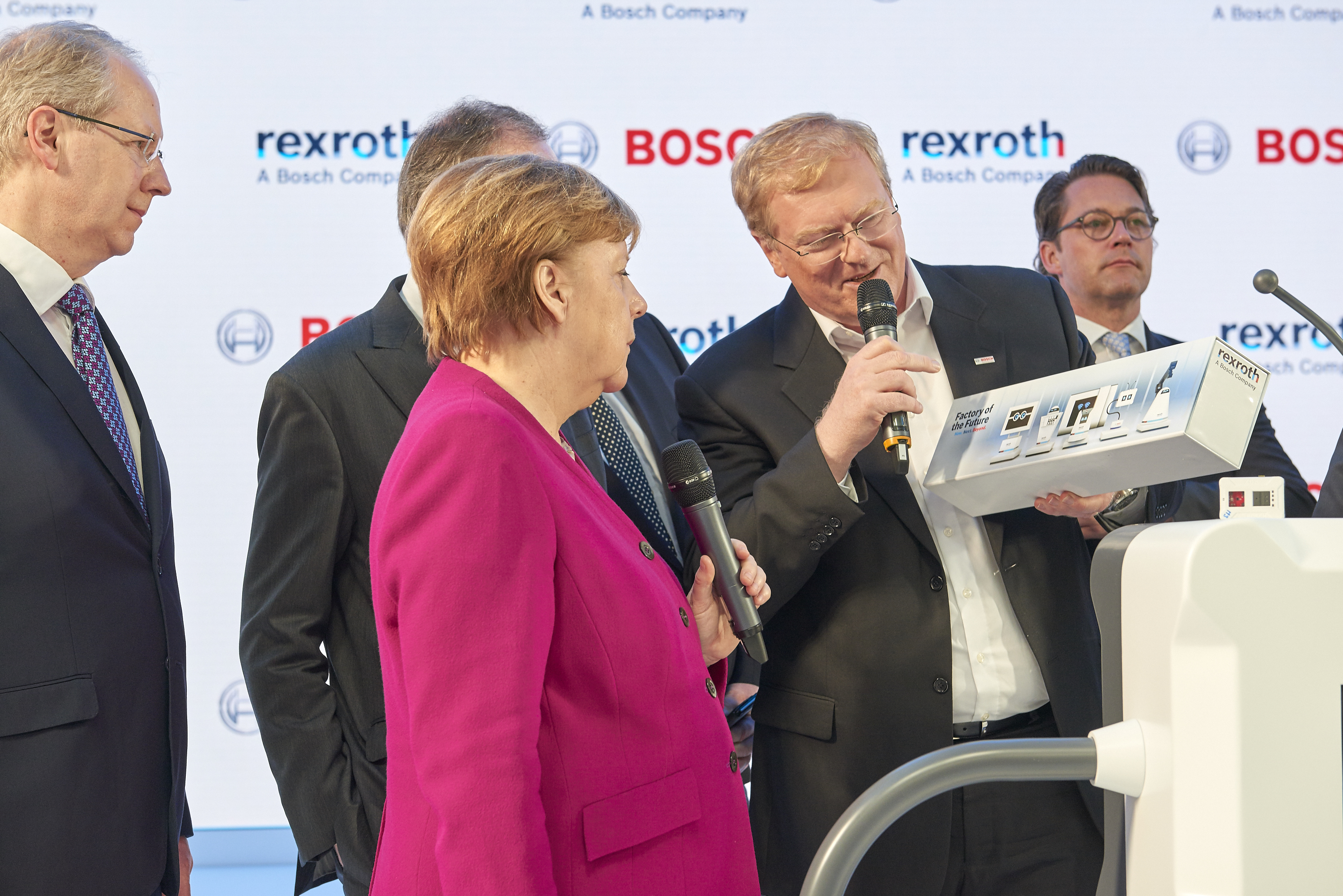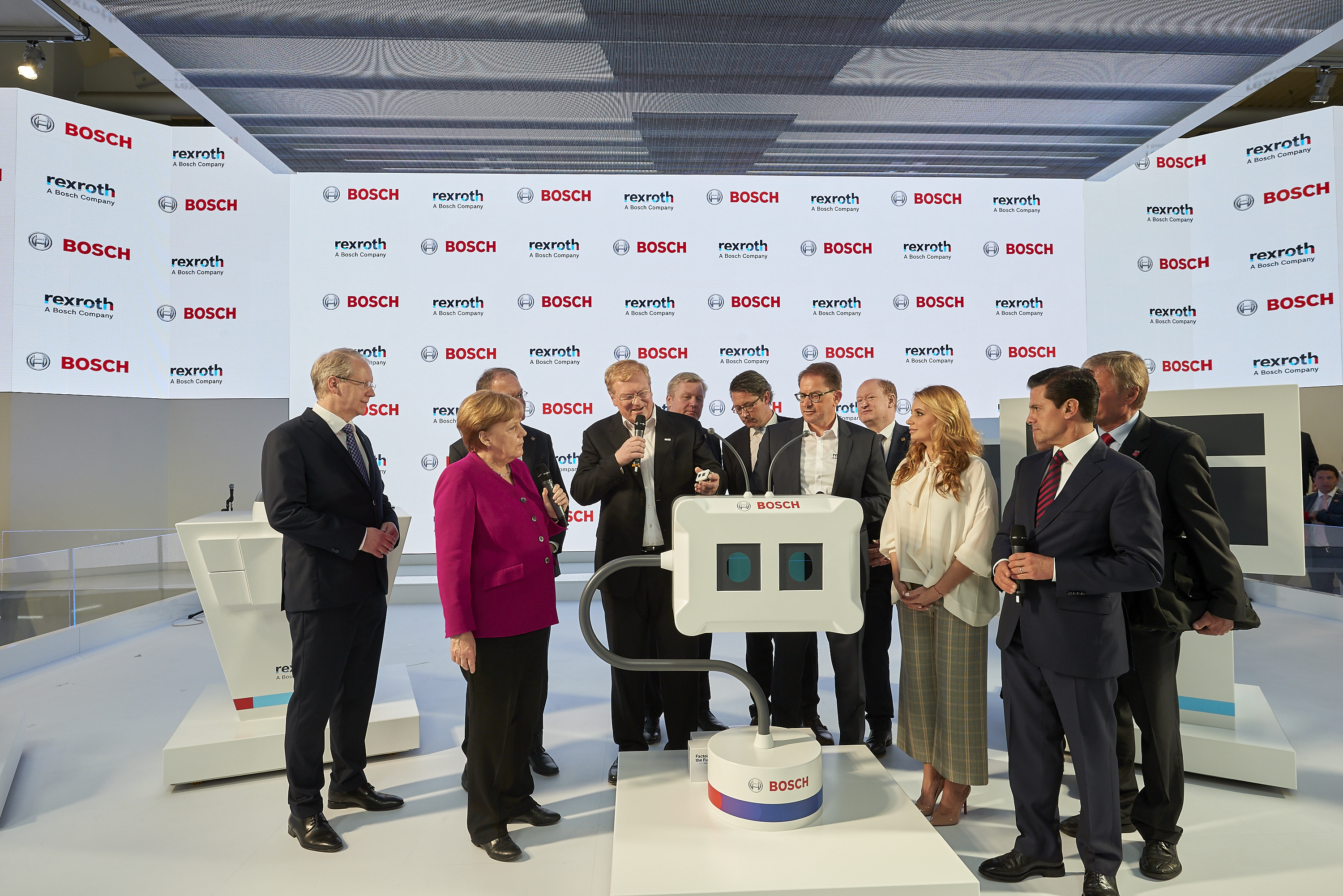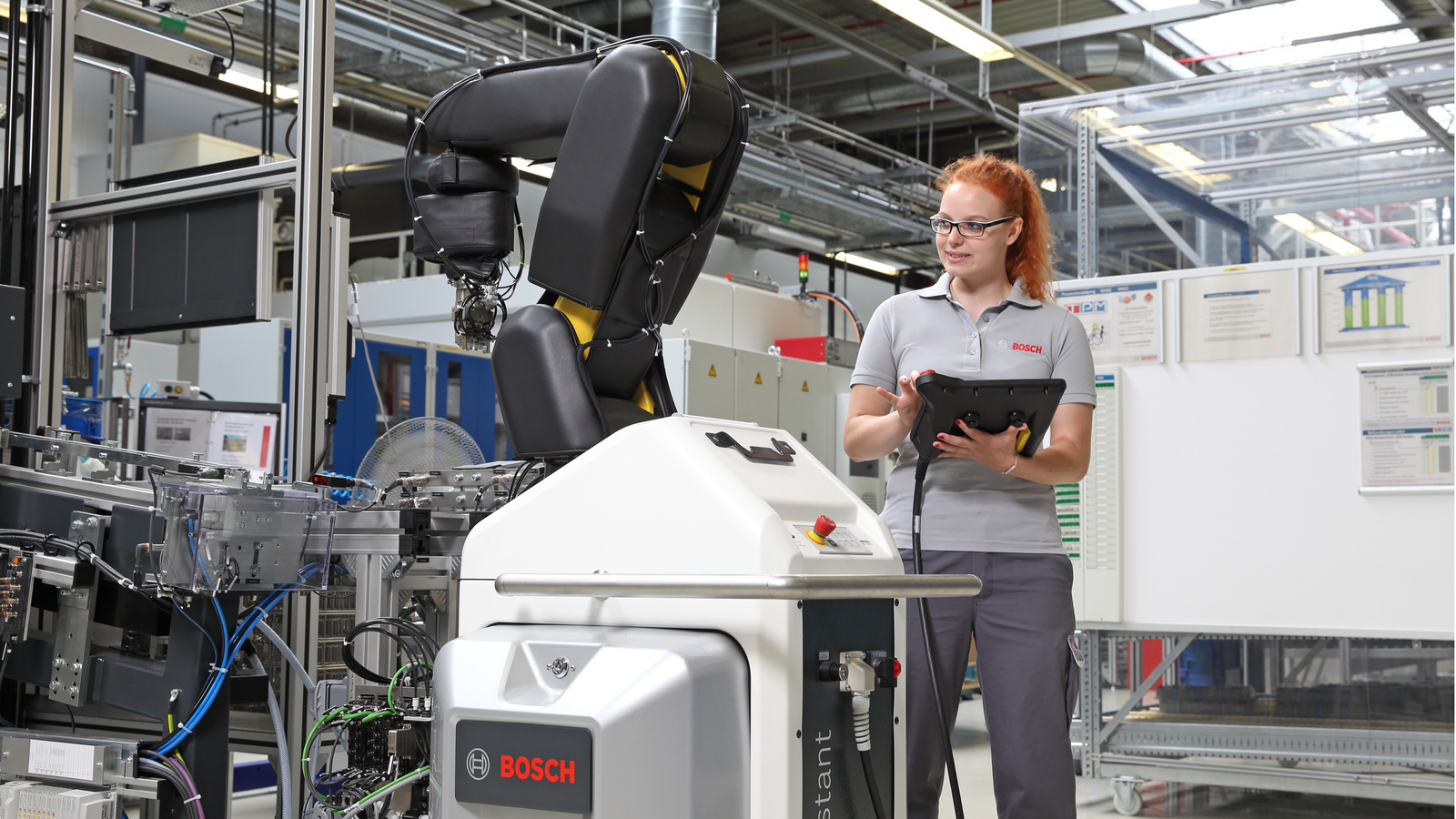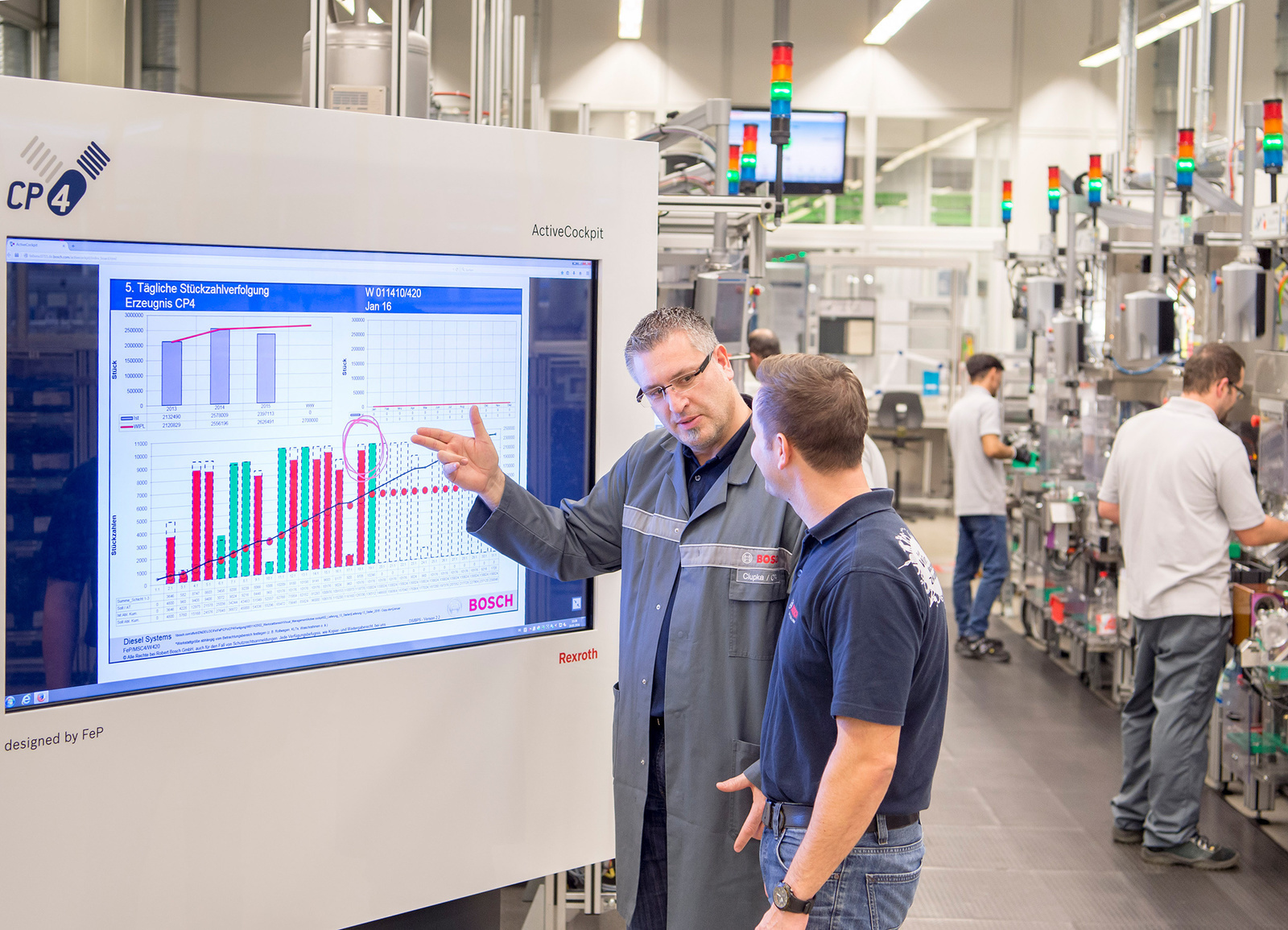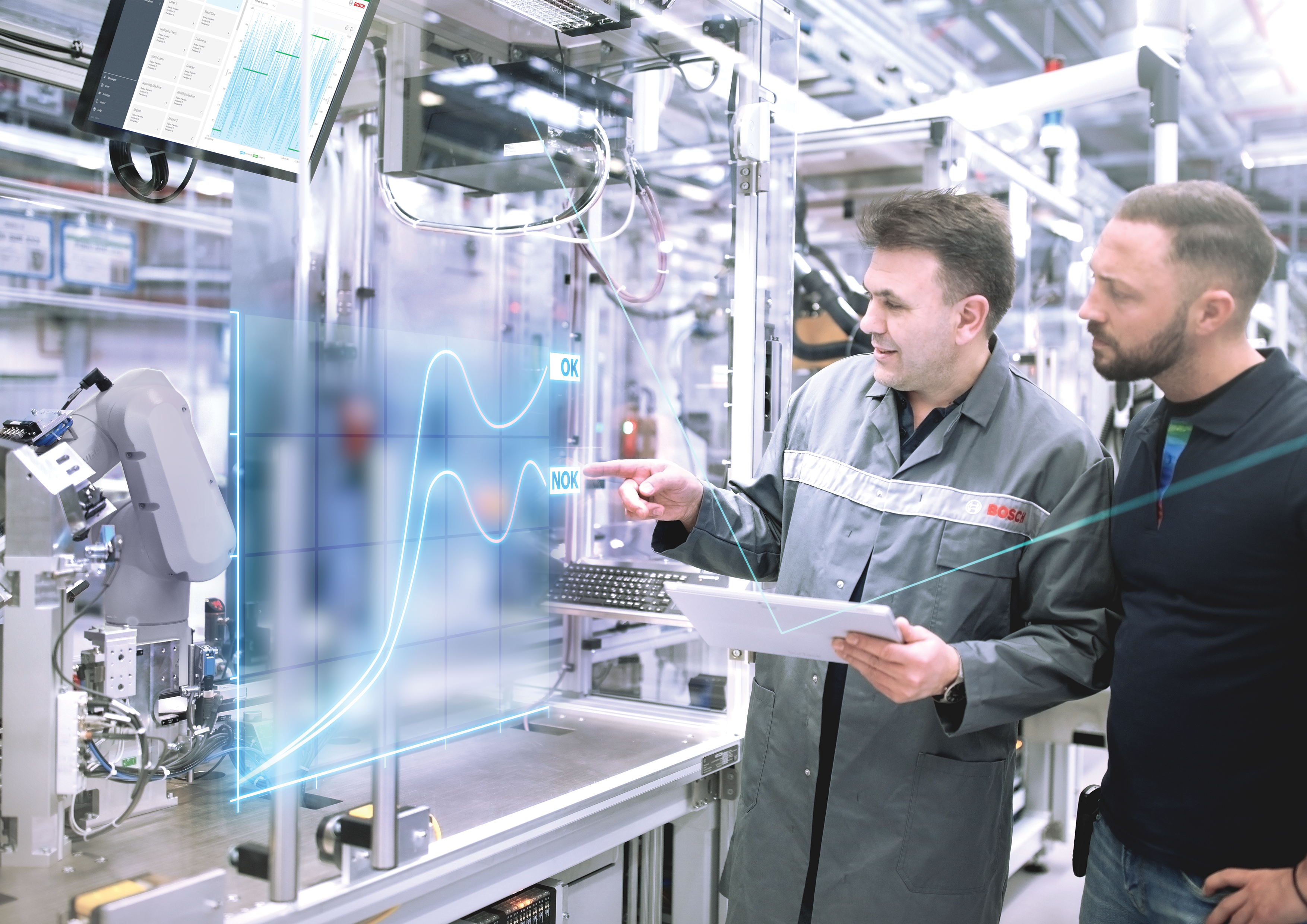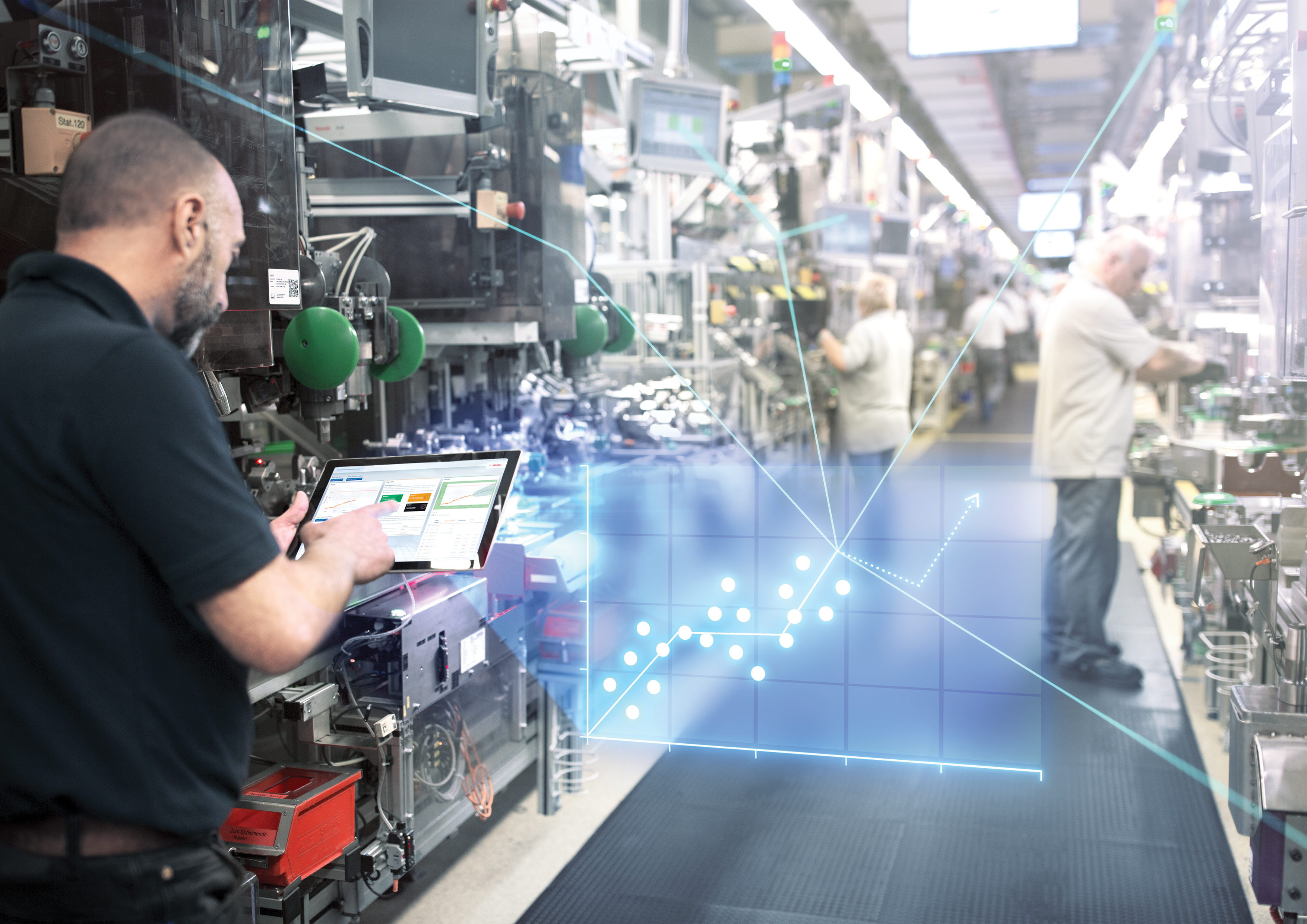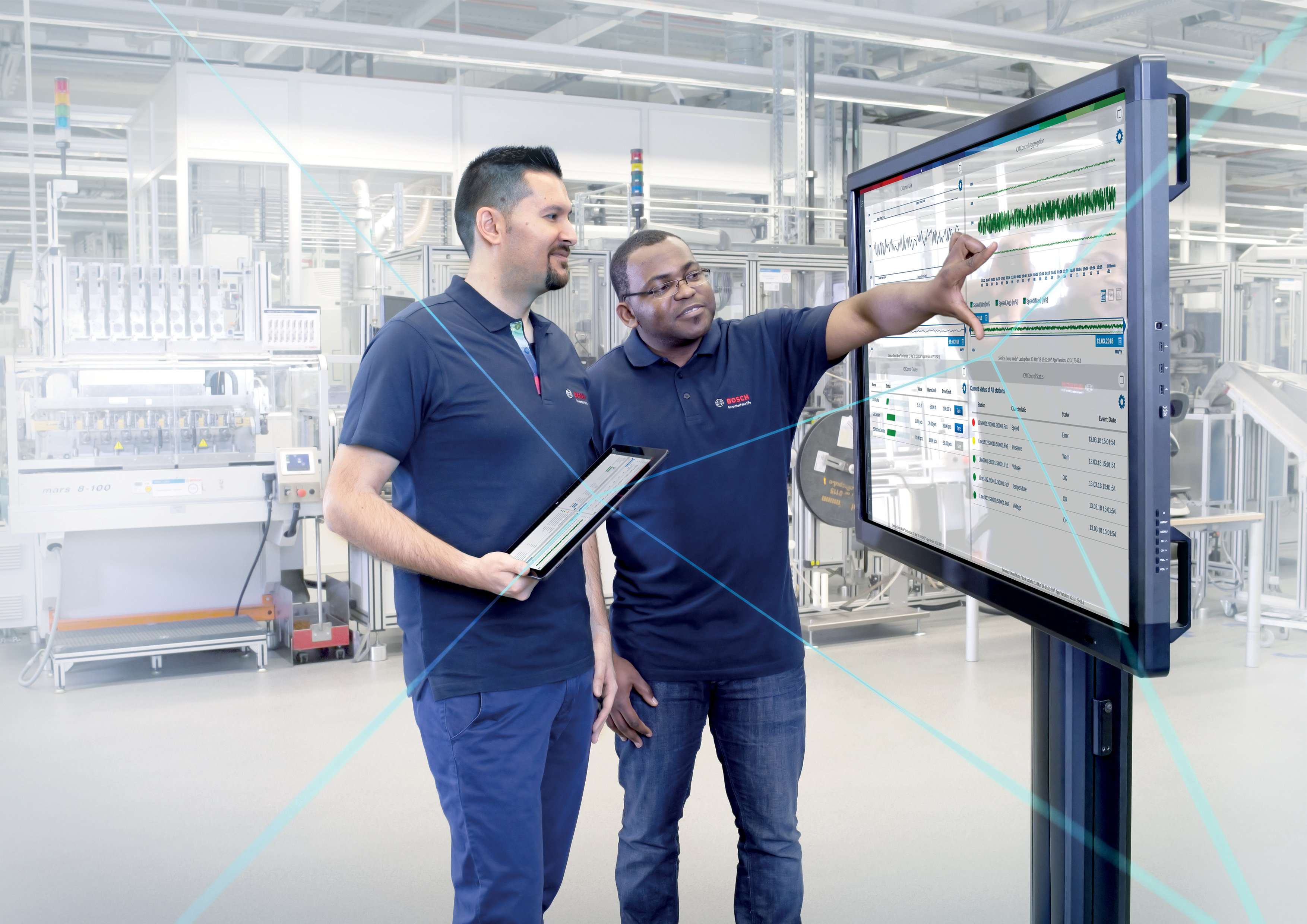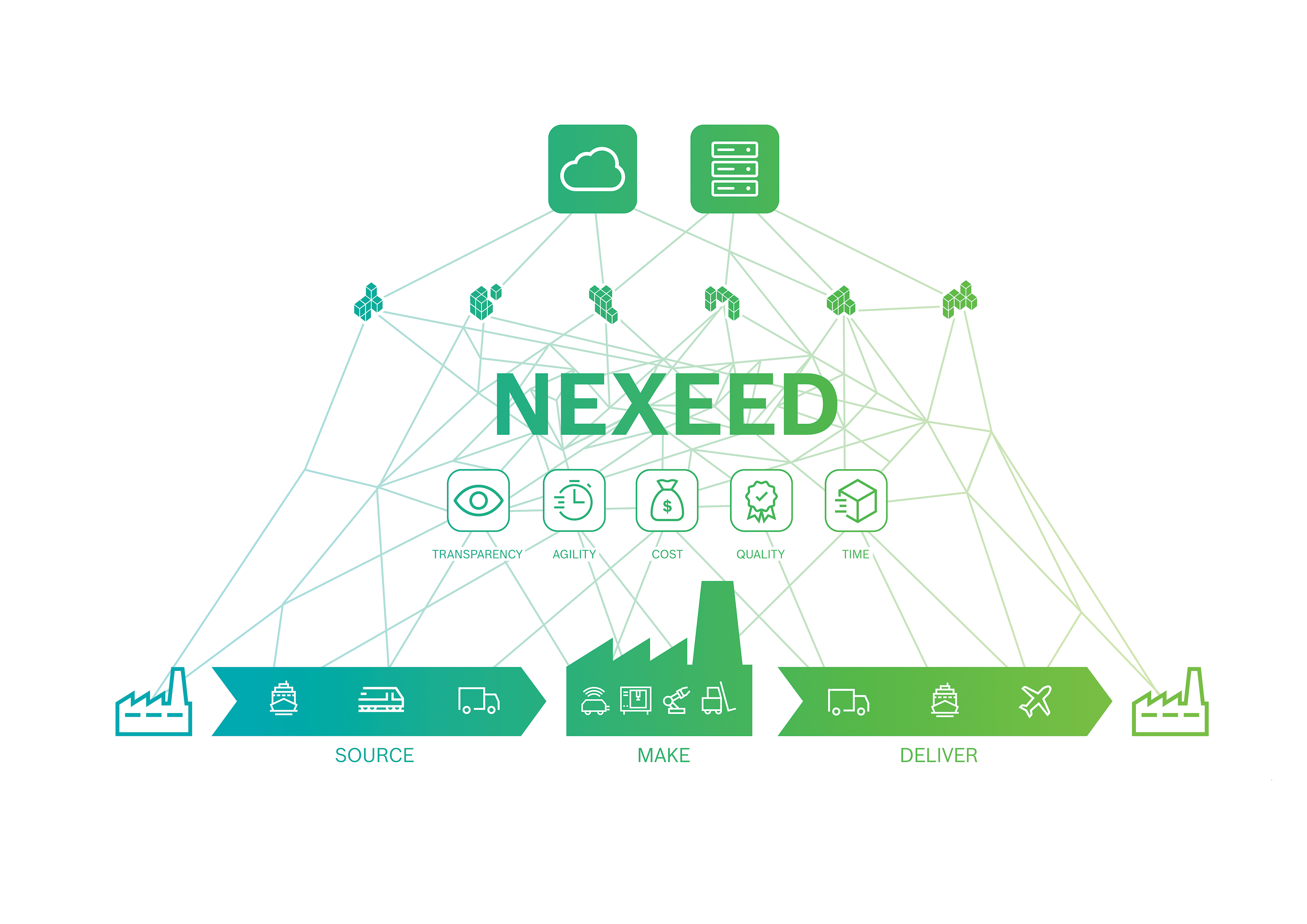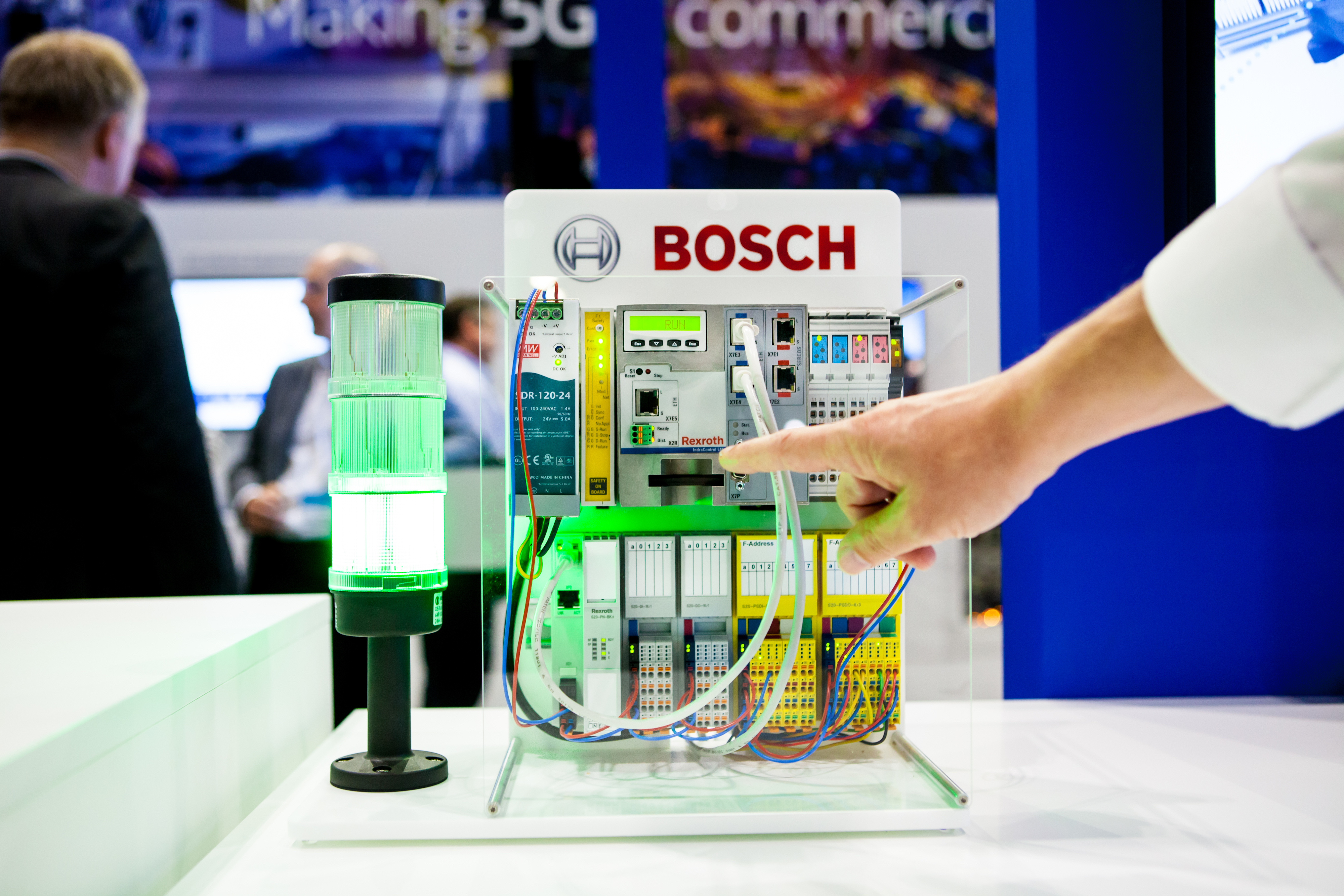Stuttgart and Hannover, Germany – The only fixed elements are the floor, the walls, and the roof. Everything else is movable and connected. Machines drive in and out as needed, assembly lines grow longer or shorter, autonomous transport robots deliver components to workers. Robots work directly with human colleagues, relieving them of dangerous or strenuous tasks. Power is transmitted wirelessly via induction loops in the factory floor. Workers, machines, and components are connected via intelligent software systems and mobile devices. An ultrafast 5G wireless network enables real-time data exchange, while artificial intelligence improves product quality through early fault detection. This reduces the burden on workers, leaving them with more time for other tasks, such as programming algorithms, developing new business models, or taking on other creative tasks. That is how Bosch imagines future factories will be. At Hannover Messe, in line with the slogan “Factory of the future. Now. Next. Beyond,” Bosch will be presenting what the company already offers (now) for connected factories, what solutions will soon be ready (next), and what it is developing for the future (beyond).
About Bosch
The Bosch Group is a leading global supplier of technology and services. It employs roughly 412,000 associates worldwide (as of December 31, 2025). According to preliminary figures, the company generated sales of 91 billion euros in 2025. Its operations are divided into four business sectors: Mobility, Industrial Technology, Consumer Goods, and Energy and Building Technology. With its business activities, the company aims to use technology to help shape universal trends such as automation, electrification, digitalization, connectivity, and an orientation to sustainability. In this context, Bosch’s broad diversification across regions and industries strengthens its innovativeness and robustness. Bosch uses its proven expertise in sensor technology, software, and services to offer customers cross-domain solutions from a single source. It also applies its expertise in connectivity and artificial intelligence in order to develop and manufacture user-friendly, sustainable products. With technology that is “Invented for life,” Bosch wants to help improve quality of life and conserve natural resources. The Bosch Group comprises Robert Bosch GmbH and its roughly 490 subsidiary and regional companies in over 60 countries. Including sales and service partners, Bosch’s global manufacturing, engineering, and sales network covers nearly every country in the world. Bosch’s innovative strength is key to the company’s further development. At 136 locations across the globe, Bosch employs some 82,000 associates in research and development.
The company was set up in Stuttgart in 1886 by Robert Bosch (1861-1942) as “Workshop for Precision Mechanics and Electrical Engineering.” The special ownership structure of Robert Bosch GmbH guarantees the entrepreneurial freedom of the Bosch Group, making it possible for the company to plan over the long term and to undertake significant upfront investments in the safeguarding of its future. Ninety-four percent of the share capital of Robert Bosch GmbH is held by Robert Bosch Stiftung GmbH, a limited liability company with a charitable purpose. The remaining shares are held by Robert Bosch GmbH and by a company owned by the Bosch family. The majority of voting rights are held by Robert Bosch Industrietreuhand KG. It is entrusted with the task of safeguarding the company’s long-term existence and in particular its financial independence – in line with the mission handed down in the will of the company’s founder, Robert Bosch.
Additional information is available online at www.bosch.com, www.bosch-press.com.
